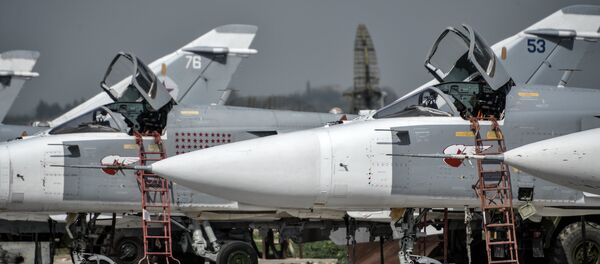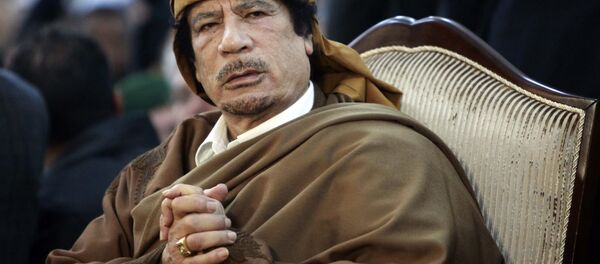What lay at the root of the US' decades-long inconsistent foreign policy in the Middle East? The answer is: vested interests and faulty paradigms, American intellectual, political scientist and historian Robert S. Leiken writes in his Op-Ed for The National Interest.
"America spent the last thirty years attacking illusory foes or defending purported friends in the Middle East, sacrificing blood and treasure, polarizing our polity and forfeiting influence. Our misadventures resemble a game of blindman's buff, our record that of a perennial cellar-dwelling football team. Consecutive American administrations turned the ball over several times without moving it downfield. We barge into Middle East conflicts like a drunken bar brawler," Leiken emphasizes.
Before bogging down in the Middle East, the US leadership did not pause for thought on what was really going on in the region and what the possible consequences of the meddling into the longstanding sectarian strife were.
"The invaders of Iraq never envisioned a clash of sects, of civilizations. We overthrew a 'totalitarian dictator' with 'weapons of mass destruction'," he remarks, referring to the US' toppling of Saddam Hussein in Iraq.
"After 9/11, we embraced the wrong paradigm. Had it been understood then that the Shia-Sunni 'clash of civilizations' structured the theater of action — not totalitarianism — we might have avoided an ongoing fifteen-year debacle. Western intervention has not and will not end this struggle but intensify and prolong it," he stresses.
However, there were vested interests at the root of the US' flawed foreign policy.

Under the pretext of a global war on terrorism this "counterinsurgency Octopus" extended its influence toward the White House and Pentagon, promoting more interventions.
"Instead of preserving Ukraine as a bridge between Russia and the West, the democracy-everywhere-now chorus (another arm of the Octopus) helped to overthrow the latest of Ukraine's corrupt oligarchical rulers… converting a paltry passive geopolitical backwater into a neo-Cold War battlefield," Leiken stresses.
At the same time, in the Middle East, the United States continues to arm and support Gulf regimes which are in their turn sponsoring radical Islamists across the region. As a result, we have found ourselves amid a vicious cycle of violence — in the Middle East, North Africa and Central Asia.
Washington is still following the faulty foreign policy paradigms, but it's like bashing its head against a brick wall.
If the White House is really worried about global jihadists and self-professed caliphates, it should sanction entities that fund them in first place, the historian emphasizes.
The US leadership should maintain the balance of powers through diplomatic means, not military invasions. And in that sense, Leiken's position looks similar to that of Professor Stephen F. Cohen.
Cohen, professor emeritus of Russian studies at New York University and Princeton University, has repeatedly stressed that the US war party has chosen the road that is leading to nowhere.
Commenting on Russia's foreign policy concept in his latest interview on The John Batchelor Show, Professor Cohen noted that what Moscow wants above all is "a stable world, where the great powers cooperate on matters of security, while retaining all their diversity."
"We can say it's not compatible with our national interests, though I believe it is," the US academic stressed.
It's time for Washington to separate the wheat from the chaff, abandoning outdated Cold War-era stereotypes and to deal with what is real.




